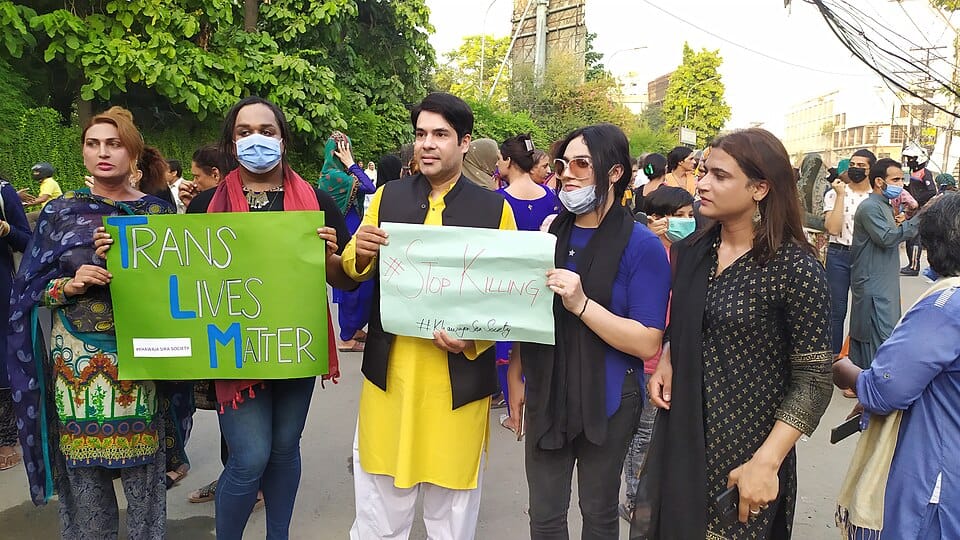Three trans women brutally killed in Pakistan

The bodies of three trans women were discovered on Sunday, 21 September along a roadside on the outskirts of Karachi, Pakistan’s largest city, in what activists are calling a targeted act of violence against an already vulnerable community.
According to police reports, the victims were shot at close range and later buried in a local graveyard. Senior police official Javed Abro confirmed that a manhunt is underway to identify and apprehend the perpetrators, though the motive remains unclear. Sindh Province Chief Minister Murad Ali Shah condemned the killings, describing trans people as “an oppressed section of society” and vowing that those responsible would be brought to justice. He has ordered a formal investigation into the incident.
Members of the trans community staged a protest outside Karachi’s Jinnah Hospital, where the bodies were taken. Activists warned of nationwide demonstrations if authorities fail to act swiftly. Bindiya Rana, a prominent trans rights advocate, stated that violence against the community is not new, but deeply embedded in Pakistani society.
The Gender Interactive Alliance, a local rights group, identified the victims as Karachi residents who earned their livelihood through begging. The group also highlighted a separate knife attack just two days earlier that critically injured another trans woman at Sea View Beach. These back-to-back tragedies, the alliance said, suggest that the community is being systematically targeted. The organisation has called for the establishment of a dedicated protection unit and urged civil society to offer stronger support.
Despite legal recognition of trans people as a third gender by Pakistan’s Supreme Court and the passage of the Transgender Persons (Protection of Rights) Act in 2018, discrimination and violence remain rampant. Activists argue that social stigma and institutional apathy continue to undermine the law’s effectiveness. A 2023 report published in The Lancet revealed that 90% of trans individuals in Pakistan have experienced physical assault, while over 80% report being denied employment due to their gender identity. Only 7% are employed in the formal sector, and political representation remains virtually non-existent.
In Khyber Pakhtunkhwa province alone, 267 cases of violence against trans people were reported over five years, yet only one conviction was secured - highlighting systemic failures in law enforcement and judicial processes.
Rights groups and activists are urging the Pakistani government to take immediate steps to protect trans citizens. These include enforcing existing laws with greater rigour, providing access to healthcare, employment and legal aid, and launching public awareness campaigns to combat transphobia.
Support independent LGBTQ+ journalism
Scene was founded in Brighton in 1993, at a time when news stories about Pride protests were considered radical. Since then, Scene has remained proudly independent, building a platform for queer voices. Every subscription helps us to report on the stories that matter to LGBTQ+ people across the UK and beyond.
Your support funds our journalists and contributes to Pride Community Foundation’s grant-making and policy work.
Subscribe today

Comments ()